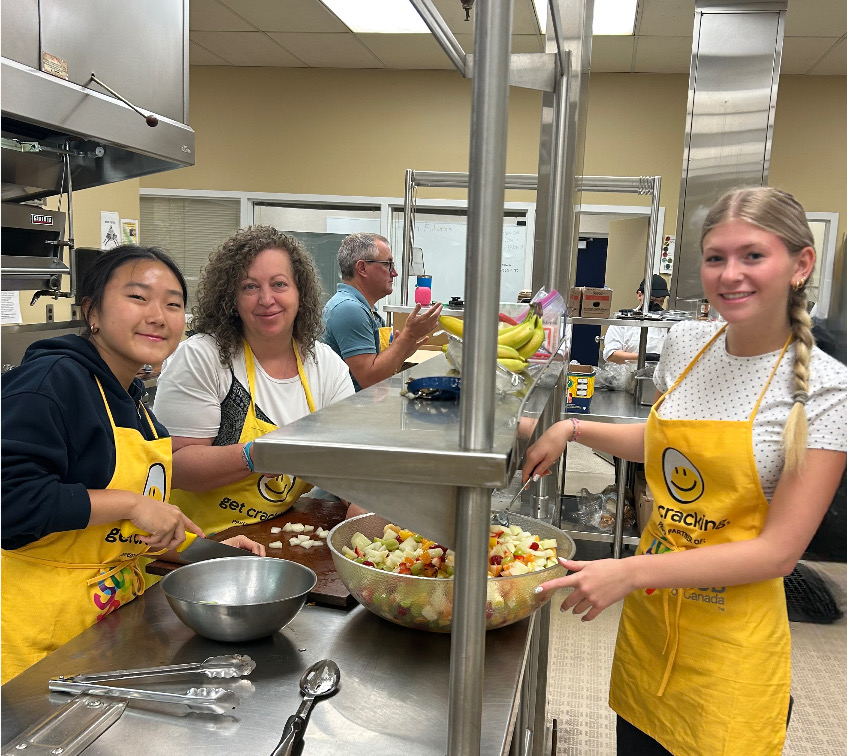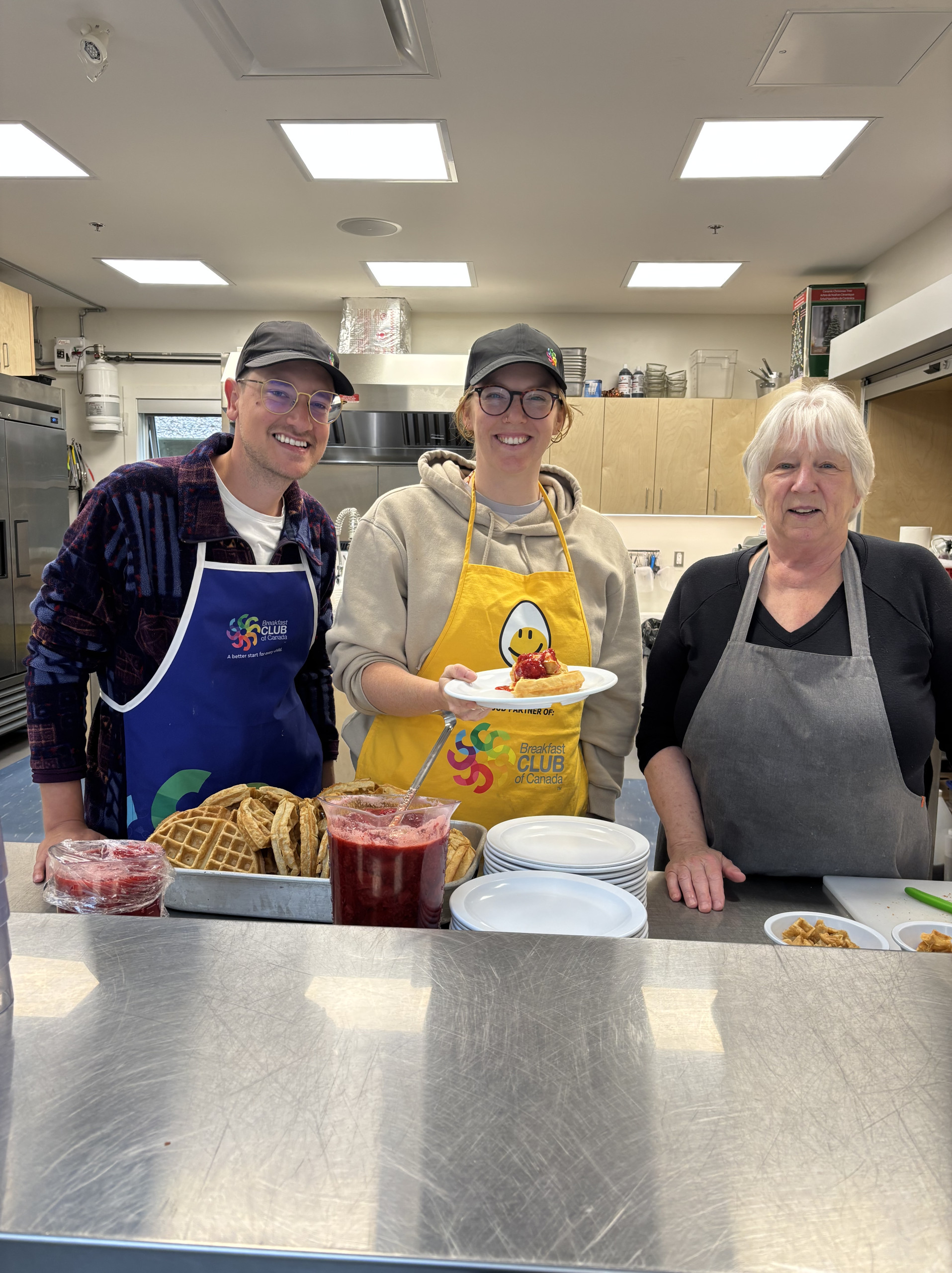
Volunteering At A Breakfast Program: An Experience Open To Everyone!

As we celebrate International Volunteer Day, Breakfast Club of Canada would like to thank the 17,500 adult volunteers and 10,300 youth volunteers who rise and shine every morning to get a good healthy breakfast ready for 240,000 students in 1,809 schools across the country. For the past 25 years, you have been the driving force behind the success of our mission. Without you, the Club’s nation-wide network of breakfast programs would not exist.
Today, we’d like to shine the spotlight on the work done by the members of the Association des personnes handicapées de Chibougamau-Chapais (APHCC). APHCC Executive Director Lynda Bubar explains: “As part of the association’s fight against poverty and marginalization, we developed a pilot project in November 2010 to serve breakfast and lunch at La Porte-du-Nord, a local high school.”
For this initiative, the cafeteria uses the services of people with intellectual and/or physical disabilities. This gives them an opportunity to work in a stable, well-supervised environment suited to their individual needs. As a result, they are less socially isolated and feel like they belong to a unified community. As everyone gets better acquainted, the differences between them become less apparent, and individual gifts and talents shine through. The students are respectful, and volunteers with disabilities enjoy the important role they play in the school.
Routines and tasks are planned around volunteers’ capacities, their ability to learn and even their specific personalities. They can therefore progress at their own pace, take on new challenges and become more confident. Once they have reached a certain level of comfort in their activities, the APHCC then gradually increases the degree of difficulty. They can also use the opportunity to gain personal and job-related skills.
Bubar explains that the work experience is appealing and enriching. Not only is it a stable source of nutrition for both students and volunteers, but it also provides an environment that is mindful of varying aptitudes and needs. Plus, it makes people with disabilities feel valued and needed. These are all meaningful benefits. As a result of their involvement, the volunteers have become active, engaged members of their community. They are also instrumental in helping people understand and appreciate individual differences. It is a wonderful example of a hands-on awareness and education program in action – and a great opportunity to bring more visibility to people living with disabilities.
The impacts of the project are tangible. Volunteers find the experience rewarding at a personal level. For others, it helps them maintain an emotional balance. And many of them say that it fills a fundamental need of feeling like they’re part of a family.
Thinking back, one volunteer stands out in Bubar’s mind. “Diane, who had severe physical limitations, volunteered with the breakfast program for five whole years. She’d show up for her shift without fail, always on time and always ready to work. She took her role very seriously. Everyone on the team and all of the students loved her. And she got a lot out of it in terms of self-esteem.”
“The relationship between students and the APHCC team is very important,” added Bubar. “We are very lucky to be able to serve a healthy breakfast every morning in such a friendly, inclusive environment. This endeavour has made it possible for the team, volunteers, job readiness program participants and, of course, students to become more caring, compassionate people. It’s very heartwarming to see.”
Thank you to all APHCC volunteers for making their community a better place!









